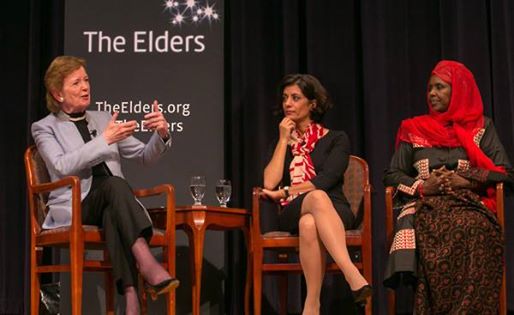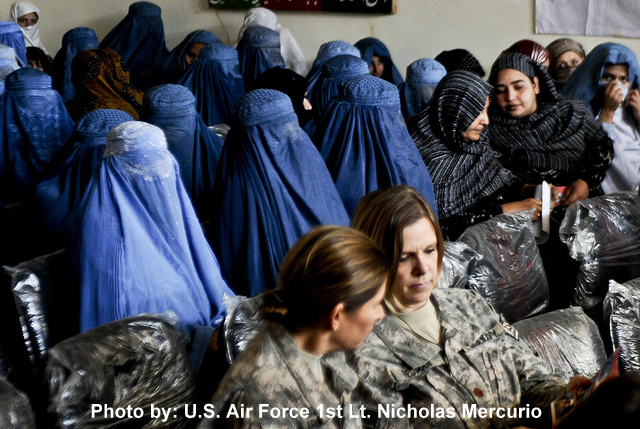Gender equality and the empowerment of women have been widely debated for many years. Women play an important role in building peace and contributing to conflict prevention, yet remain under represented in many conflict resolution strategies and formal peace processes.
On Wednesday, November 5, 2014, four representatives of The Elders, an organization founded by the late Nelson Mandela in 2007, which addresses the advancement of universal human rights, held a live debate, discussing the role women play in contributing to peace and how they can increase their participation in international conflict management.

The first panel of the debate began with former US president and human rights advocate Jimmy Carter. Carter expressed the importance of advancing women in the employment sector, citing that among 500 Fortune companies, only 23 female CEOs are represented, and that women hold only 23% of political positions globally, and 15% of political positions in the US.
The debate was also heavily focused on the current crisis in Syria, and the lack of input in this conflict by or on behalf of women. Former President of Ireland and UN High Commissioner for Human Rights Mary Robinson stated the importance of women taking to social media to raise their voices, and stated that it is important to “connect women at the grassroots with decision-makers at every level of society.”
Somali peace activist Asha Haji Elmi explained that peacekeepers need to represent “the voice for the silent minority, primarily women and children.” Women represent half of the global population, yet out of the 31 major peace processes which took place between 1992 and 2011, only 4% of signatories, 2.4% of chief mediators, 3.7% of witnesses and 9% of negotiators were women.
The second panel consisted of former Secretary-General of the United Nations, Kofi Annan, and human rights activist Hina Jilani, who discussed the dilemma of identity-based conflict around the world. According to Jilani “with more internal conflicts coming up based on identity rather than territorial issues, it has become even more difficult for women to play a role.”
Middle East and gender expert Manal Omar, argued that the conflict that countries connected with the Arab Spring had to endure, is in part due to the lack of female representation at the peace table. Omar stated “when women are absent, you can almost guarantee that you will not have democratic principles in the culture that is emerging.” As of 2011, only 10.7% representatives in Arab parliaments are women. Omar further argued that the empowerment of women frightens extremist groups, citing that “women do challenge ISIS and that’s what they’re scared of, and why they target women.” The debate concluded with Kofi Annan encouraging women who want to make the world a better place to have courage and stand up.
Women are poorly represented within most peace talks, despite the fact that they offer important insight and understanding with regards to conflict management, especially conflict which is gender-based. The continuation of discussions similar to the debate hosted by The Elders will hopefully further encourage global efforts to empower women and to promote their inclusion in formal peace processes and conflict resolutions. Rebecca Mukuna




